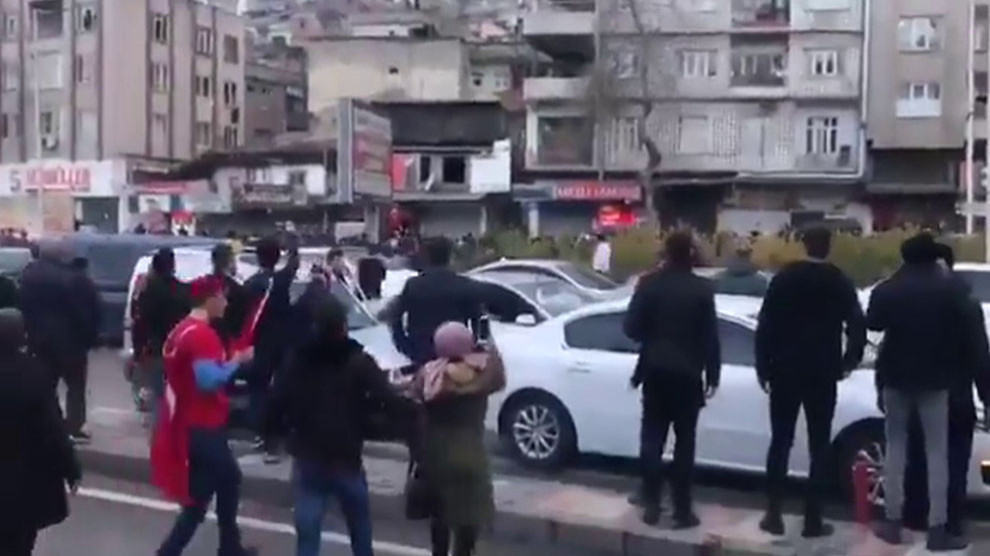Nationalist lynch mob attacks homes of Syrians in Maraş
In Maraş a nationalist mob has attacked houses and shops of Syrian refugees. Several people have been injured and a pogrom atmosphere is spreading.
In Maraş a nationalist mob has attacked houses and shops of Syrian refugees. Several people have been injured and a pogrom atmosphere is spreading.

In the province Maraş a nationalist mob has attacked houses and shops of Syrians. Dozens of residential buildings and shops of Syrian refugees and migrants in the centre of the province were attacked and partly destroyed. Involved attackers hanged Turkish flags on the shops.
ETHA (Etkin Haber Ajansı) news agency reports that several Syrian-born people are said to have been injured, some of them seriously. Exact numbers and information on the condition of the injured are not available yet. A pogrom mood is spreading in Turkey, which is ignored by the authorities and government media.
Maraş'ın Elbistan ilçesinde faşistler, Suriyeli mültecilerin evlerine saldırdı. pic.twitter.com/NuFXKylK2f
— ETHA (@etkinhaberetha) March 1, 2020
Last July, a Turkish lynch mob had been roaming the streets of the Istanbul suburb of Küçükçekmece, destroying Syrian businesses. The authorities reacted by deporting Syrian women without residence permits to other parts of Turkey. In September, an angry crowd attacked Syrian shops in Adana’s Seyhan district. The attack was preceded by a rumor about the sexual abuse of a child by a Syrian refugee.
Atmosphere in Maraş brings back memories of 1978 pogrom
Residents and human rights activists also fear another pogrom in Maraş. Many people can only too well remember the massacre 41 years ago. On 19 December 1978 the film "Zeynel and Veysel" was to be presented in Maraş in the Çiçek Cinema. Shortly before, the film was replaced "on request" and the extreme nationalist film "When the sun rises" was shown. The anticommunist film revolves in an extremely Turkish nationalist way around the struggle of the "Turks" in Crimea against Russia. A shock grenade detonated during the film screening. The grenade, which did not hurt anyone, provided the pretext and prelude for the murder of hundreds of Kurdish-Alevite men, women and children.
According to official figures 111 people were killed in the pogrom of Maraş. Unofficial sources consider a figure of 500 murdered quite possible and criticise the low official figures. More than 200 houses and about 70 shops were destroyed. On 26 December 1978 not a single Alevite was living in the city. The survivors had fled the city.